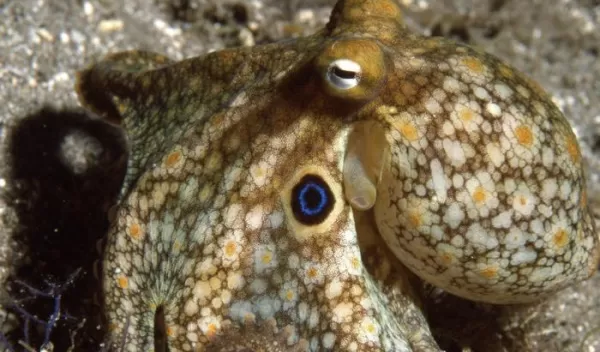
Masters of acclimation: Octopuses adjust to cold by editing their RNA
Each cell comes with a finite set of instructions encoded in its DNA. Life, however, is unpredictable, and when circumstances change, animals need flexibility to acclimate. Now, U.S. National Science Foundation-supported research led by Joshua Rosenthal of the Marine Biological Laboratory and colleagues indicates that octopuses and their close relatives elegantly adjust to environmental challenges by tinkering with their RNA — an intermediary molecule that conveys DNA's directions.
In a study appearing in the journal Cell, the researchers document an enormous uptick in RNA editing when octopuses, squid and cuttlefish, known as coleoid cephalopods, acclimate to cold water.
After cooling the octopuses' tanks, the team saw increases in protein-altering activity at more than 13,000 RNA sites in the animals' nervous systems. In two of these cases, they investigated how swapping out a single letter of the RNA molecule's code alters the function of proteins the neurons produce.
Through RNA editing, the cephalopods appear to have found a unique way of tweaking their own physiology, according to Rosenthal.
"We're used to thinking all living things are preprogrammed from birth with a certain set of instructions," he says. "The idea the environment can influence that genetic information, as we've shown in cephalopods, is a new concept."
A cell's molecular machinery transcribes the instructions encoded in DNA into RNA, some of which goes on to make protein. Researchers have learned that cells have the capacity to swap one member of the four-letter genetic code, adenosine, for a substitute molecule, inosine, which behaves like guanosine, another one of the original four. While the same process occurs in humans and most other animals, it only rarely affects RNA that's bound to produce protein.
The scientists focused on the effects of one factor, temperature, in the nervous system. Temperature matters because it governs the activity of enzymes, which in turn drive chemical reactions crucial to all physiological processes.
Like other cephalopods, the California two-spot octopus, Octopus bimaculoides, they studied cannot generate its own body heat to counteract the temperature drops that accompany tides, changes in water depth and seasons.
After acclimating octopuses to temperatures at the warm end of their natural range (22 degrees C/ 72 degrees F) and the cool end (about 13 degrees C / 55 degrees F), the researchers examined their RNA. Within the molecular code, they tracked activity at locations where they already knew editing occurs. In the octopuses in the cold tanks, they found significant increases in the protein-altering one-letter change at 13,285 sites. For those in the warm tanks, they found upticks at 550 such places.
"The discovery that shifts in water temperature cause rapid editing of the genetic information that codes for proteins key to nervous system function points to an ingenious mechanism by which octopuses, and potentially other animals, can adjust to change and achieve resilience in the face of environmental challenges," said Edda Thiels, a program director in NSF's Division of Integrative Organismal Systems.
